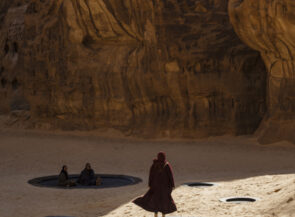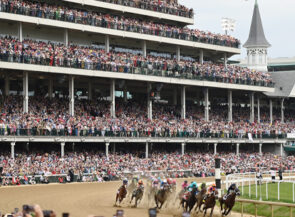In a career that has spanned more than 40 years, Forest Whitaker has often played the kinds of loners, intellectuals, and quiet men you expect to show up on the fringes of films, yet the actor has carved an unlikely reputation as a leading man. Beloved by directors, he brings a zen focus and a deft sense of character to his varied roles: a jovial soldier in Barry Levinson’s Good Morning, Vietnam; a sly pool shark in Martin Scorsese’s The Color of Money; a Hagakure-obsessed hitman in Jim Jarmusch’s Ghost Dog: The Way of the Samurai; the drug-addled jazz legend Charlie Parker in Clint Eastwood’s Bird. His ferociously intense, Jekyll-and-Hyde portrayal of Idi Amin in 2006’s The Last King of Scotland earned him the Academy Award for Best Actor in a Leading Role, making him one of only five Black actors to ever win the prize.
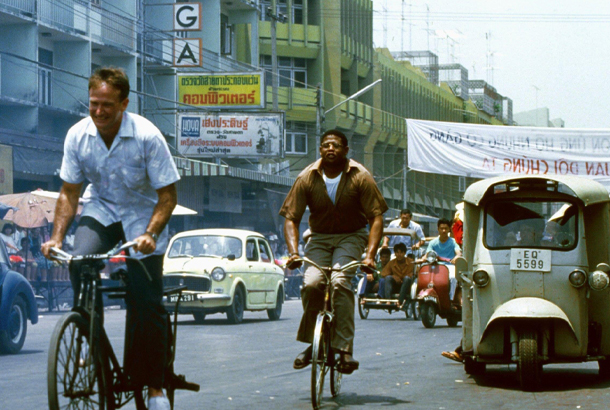
Acting, though, is only one facet of Whitaker’s oeuvre. As a director, he has helmed sharp, original romances such as Hope Floats, Waiting to Exhale, and First Daughter. As a producer, he has supported award-winning films that survey Black American life, including Rebecca Hall’s Passing and Ryan Coogler’s Fruitvale Station. He has also found a calling outside of film, with The Whitaker Peace & Development Initiative, an organization he founded in 2012 to foster community development in at-risk areas around the world.
As much as Whitaker has expanded his influence, he’s still arguably at his most powerful on screen. This month, he brings his inimitable presence to the role of Charles “Doc” Broadus, the trainer for world heavyweight champion (and future grill salesman) George Foreman, in George Tillman Jr.’s inspirational biopic Big George Foreman: The Miraculous Story of the Once and Future Heavyweight Champion of the World. It should come as little surprise that the character aligns deeply with Whitaker’s lifelong belief in mentorship. By phone, the actor tells Hemispheres about his love of martial arts, seeing the real Foreman fight, and giving others an opportunity to succeed.
I read that you originally studied to be an operatic tenor. Why did you switch to acting?
I was accepted into [the University of Southern California’s] Thornton School of Music to study music. I decided that I could reach more people through acting, especially since opera is a limited medium. There are a lot of parameters around it, and I wanted to tell stories in order to resonate with people.
Do you ever think about what would have happened if you had stuck with opera?
I guess not really. When I first was doing it, I did a light opera, The Beggar’s Opera—a precursor to The Threepenny Opera—and that’s how I got my first acting part. I want to imagine myself now, if I had stuck with opera, full of success [laughs]. The image in my head of me singing from the bottom of my toes makes me laugh. I love different types of music, but it wasn’t the right path for me.
As seen in films such as A Rage in Harlem and Lee Daniels’ The Butler, you have an uncanny ability to take people who would be supporting characters in other movies and make them central figures. What do you look for in a part? I like something that helps me grow.
I like learning new human narratives, learning about different parts, about different people. That’s why I tend not to do the same characters as much: I’m continually trying to evolve. I guess when I’m looking at a script, I’m [also] thinking about who’s directing it, but that’s not a requirement, because I’ve done a lot of films with first-time directors. In the script, I want to see the character and what I’ll be learning.
You directed Hope Floats and Waiting to Exhale, which are both comfort watches for me. Do you want to direct again?
I was thinking about directing in the next year or two, so it’ll happen. I’m always looking to see what kind of healing I can show—the story of characters who are taking a journey, and they’re evolving and healing from whatever pains they might have. That’s a constant in all of them, like the ladies in Waiting to Exhale, Sandra Bullock in Hope Floats, but also even in First Daughter. Whatever I direct next in some way will be exploring human existence and wanting to live and wanting to find something that’s hopeful about it. Usually there’s gonna be some sort of growth inside it, so it’ll still maintain that, but I’m quite sure it’ll be more visceral than some of the other movies I’ve directed.
Producing has also become a big part of your career. On top of recent films such as Passing and Sorry to Bother You, you’re a producer on Godfather of Harlem, the MGM+ series in which you also star. What appeals to you about that part of the business?
I want to support artists, to [help them] tell their stories. I’ve been doing it for a long time with Nina Yang Bongiovi and Significant Productions. We did a number of films with first-time filmmakers and filmmakers who needed support to make it through [production]. I think all those voices need to be heard, so they can continue to support themselves and continue to produce their own way.
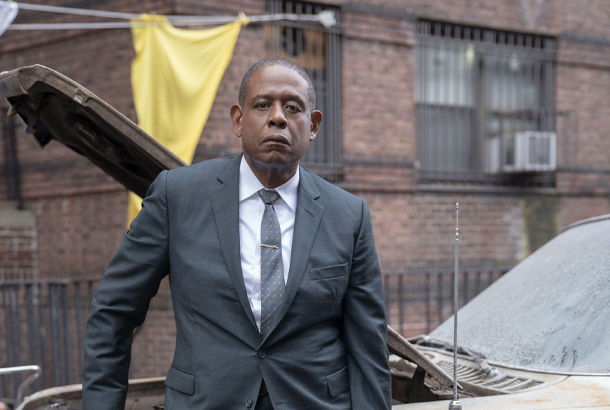
You’re in this month’s Big George Foreman—when did you first hear about the film?
They were casting and working and developing at the time. Unfortunately, there was a cast member who passed away, Michael K. Williams—a really talented , great actor—and they came to me to see if I would be willing to step in. I was probably the last person cast in the film.
This is your second boxing film, after Southpaw, in which you also played a trainer. Did you draw on that experience for this part?
Yeah, I did. All of the research I did before, I was able to apply to what I was doing now, so I didn’t have to repeat all that territory from scratch. I had been a fan of sparring and boxing in the gym for a while, so there were a lot of things that helped me be in George Foreman. One of them was Southpaw.
What did you discover about your character, Doc Broadus, while doing your research?
He was a straight shooter. He was somebody who spoke his mind honestly and truthfully. He really wanted to help young kids be able to succeed. I mean, he was working in the Job Corps, and that was his program. He made the boxing program. It was the way he thought he could help the youth be able to let out steam and ask questions while being kids. So I learned a lot about him with regards to books and stuff that I read about [his and Foreman’s] relationship. I also watched a number of the fights to slowly start to formulate [him].
Have you always been a fan of boxing?
I’ve always been a fan of martial arts. As a kid, I was more into studying martial arts, and luckily my teacher was interested in Western boxing, so we were able to do that as we developed as martial artists. I’m not an aficionado, where I go to a bunch of fights all the time. I couldn’t name to you who is the heavyweight champion of the world right now—but I have been to some fights. I went to the fight when Foreman won the title back.
The one against Michael Moorer in 1994? What was it like?
What was interesting about the fight were the characters. There were people from every walk of life, from the street to businessmen. I just felt like every part of society was there. There was excitement in the air, and I don’t think anyone really believed that George was gonna win. You were trying to figure out how long he would last. I was just curious, so I got some really good seats and got to watch it. Afterward, the fight was elevated by the fact that this man proved that you can do anything if you put your mind to it, along with your will and your purpose.
Were you shocked that he won?
I think everybody was. I mean, I always did carry a part of me that was rooting for him. I thought maybe it was possible. But, overall, I didn’t think it was going to happen.
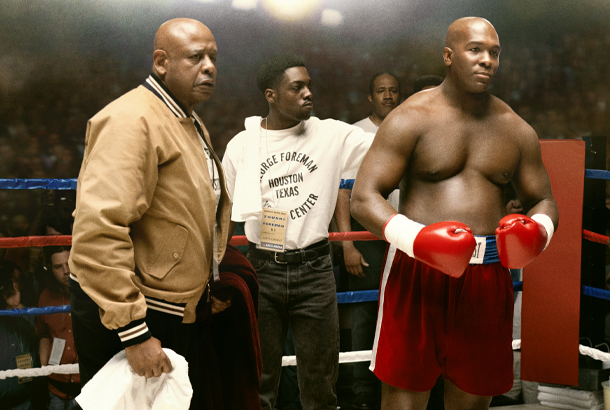
I have to ask, did you ever own a George Foreman Grill?
I didn’t. My cousin did. He loved it. It’s a really good grill.
That TV commercial was—pardon the pun—seared into my brain.
Yeah, mine too. Athletes were going around doing stuff like that at the time, like Joe Namath, but that was the first time you saw the champion of the world selling grills.
You initially attended college on a football scholarship. You’ve talked about how the sport saved you from taking a different path. Your story reminds me of Foreman’s, as he had a similar experience with boxing. Could you tell us more about how mentorship and having a clear path can often be lifesaving for Black men?
I think having goals and having moments to celebrate your emotional strength is really important. I can’t say I didn’t. I just know that as an adult and as a man, I’ve tried to do it in my work with others, and I’ve tried to do it with my NGO. We support young people, women particularly, and I try to be an example by dedicating myself to my work, so that when someone is looking at that they can also recognize whether that’s a path they want to take.
What do you hope viewers will take from Big George Foreman?
George Foreman came from really poor beginnings. He rose, and then he fell and was really poor again, without any hopes. He found something to believe in that helped carry him and ultimately brought him back. He showed that through perseverance and through belief, a goal and a purpose, you can succeed. He showed how no matter how far you seem to have fallen, you can rise up again. I mean, I try to do that. I try to do it with the filmmakers we stand behind in the classic sense—just to be there, to be supportive of what they’re trying to do, to find money for what they’re trying to do. I guess with that and my foundation, we do that a lot. We develop businesses all over the world. We’ve probably developed 600 businesses at this point, and those are people who have the opportunity to be able to succeed.
Looking back across your life and your career, is there anyone in particular that comes to mind who stepped up and gave you an opportunity?
I didn’t really have that person who could guide me. I think that’s probably why I chose to do it for others. I was always sort of a loner. There were teachers who recognized that the reason I might be making problems in class was because the classes were a little slow, so they brought me to the back of the class and gave me a desk to grade their papers. That little moment really helps you. Moments like that came from different people, like a teacher who recognized artistic expression in me and started letting me create murals around school. That, too, is a moment of mentorship. It’s just not by the same people; they were by different angels that were by me.


